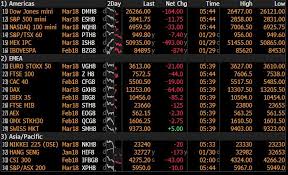The 5 Best Retail Stocks to Buy for 2019—Along With Amazon

Consumer spending is still strong: It accounted for more than three-quarters of GDP growth in the most recent quarter. But Melda Mergen, deputy global head of equities for Columbia Threadneedle Investments, for one, is expecting consumers to spend less in 2019 than they did this year. When the economy hits the brakes, investors have historically sought haven in consumer staples stocks—companies that make toothpaste, cereal, and other products customers never stop buying. Those stocks have run up significantly in the past few years, however, as their dividends, often yielding more than Treasury bonds, lured income-seeking investors. Coca-Cola stock, for one, trades at 76 times earnings, nearly as much as Amazon, while Campbell Soup’s valuation is on par with Microsoft’s. “In a prolonged downturn, we’re worried that they wouldn’t give you the kind of defensiveness that they have traditionally,” says Tom Hancock, manager of the $ 6.8 billion GMO Quality Fund.
Instead, top investors are turning to certain discount retailers that should be largely impervious to both belt-tightening by consumers and the growing e-commerce threat. The discounters have developed a symbiotic relationship with online-only sellers, providing an outlet to offload excess inventory and leftovers from canceled orders—the kinds of bargains shoppers will still drive to the store to buy. Barbara Miller, who oversees $ 10.3 billion across the three Federated Kaufmann funds, is fond of TJX Companies, the parent company of T.J. Maxx, Marshalls, and other off-price chains. With its robust balance sheet and free cash flow, she expects the stock to outperform both the retail sector and the broader market.
Dan Chung, CEO and CIO of Fred Alger Investments, thinks Burlington Stores—a discounter with one-sixth the revenue of TJX—can grow even faster than its larger counterpart, opening more than 50 new locations a year (there are some 650 already) using a data-driven real estate strategy. Chung expects Burlington to grow its revenues at a rate of 10% annually in the next few years and to expand its 8% operating margins to get closer to TJX’s 11%.
Chung is also bullish on the other, luxury end of the spectrum: “I think where it’s hard to be in retail is the boring middle,” he says. His pick: diamond jewelry purveyor Tiffany, which has a new CEO and chief artistic officer working to polish its brand back to peak luster. Engagement rings make up more than 25% of Tiffany’s $ 4.2 billion in sales (and a higher proportion of its Asia revenue)—a business Chung does not expect to slow even if the global economy does. “We view that as nondiscretionary spending,” he says.
Another company that should be less susceptible to a waning economic cycle is Home Depot. The DIY hardware giant has been investing in slick e-commerce tech and other digital technology as well as delivery infrastructure allowing it to take market share from rivals, says Miller. The stock has sold off owing to fears that higher interest rates will hit the housing market and tariffs will make imports like steel and washing machines more expensive. But Miller thinks Home Depot, which isn’t heavily dependent on Chinese goods, has the scale to negotiate better prices with its suppliers in the event of a trade war and to lead in repairs even if people buy fewer new homes. “Frankly, if there’s an economic slowdown … it makes it even more important to own those companies that have a strategy that’s creating growth from within,” she says.
For that reason, she also likes Constellation Brands, which is not only growing its share of the U.S. beer market with Mexican brands like Corona and Modelo but just bought a $ 4 billion stake in Canadian medical marijuana company Canopy Growth. Currently booming, thanks to expanded legalization in North America and beyond, marijuana shows potential to grow into a category akin to beer that’s “agnostic of the economy because it’s just a whole new business,” Miller says.
No retailer today can afford to turn its back on mighty e-commerce power Amazon—and neither can investors. Amazon is on track to account for nearly 50% of U.S. e-commerce sales in 2018, according to eMarketer. And it’s still in the early stages of expanding internationally to massive markets like India that could eventually meaningfully boost the company’s already gigantic revenues, says Tom Slater, head of the U.S. equities team at Baillie Gifford. Besides, he adds, when times are tough, companies that can offer the lowest prices generally win out: “The proposition that [Amazon has] around price, selection, and convenience will resonate in most markets you can think of.”
PICKS:
TJX Companies (TJX)
Burlington Stores (BURL)
Tiffany (TIF)
Home Depot (HD)
Amazon (AMZN)
Constellation Brands (STZ)
Below, the rest of “The 30 Best Stocks to Buy for 2019.”
- The 5 Best Financial Stocks to Buy for 2019—as Volatility and Interest Rates Rise
- The 5 Best Tech Stocks to Buy for 2019—When Facebook and Google Are Cheap
- The 5 Best Biotech and Health Care Stocks to Buy for 2019 Now That Congress Can’t Repeal Obamacare
- The 3 Best Asia Stocks to Buy for 2019 Even in a China Trade War
- The 6 Best International Stocks to Buy for 2019 Before the U.S. Economy Slows
A version of this article appears in the December 1, 2018 issue of Fortune, as part of the story “2019 Investor’s Guide Stocks and Funds: Safety Meets Strength.”








